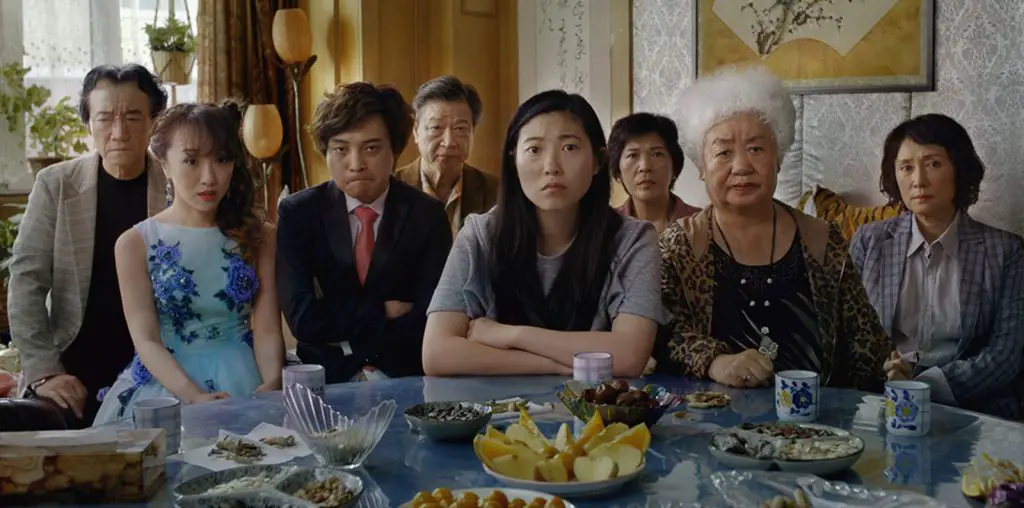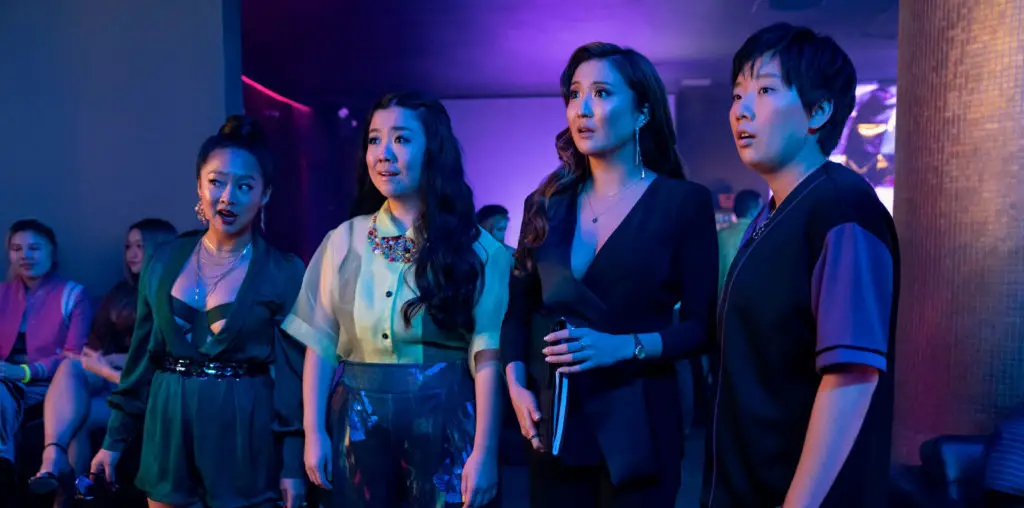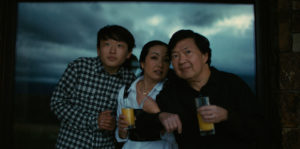
Regrettably, filmmaker Jean Shim resorts to the most basic tropes and on-the-nose rhetoric in her latest exploration of racism in America, A Great Divide. Gems hide within this small-scale drama, aching to shine. Instead, the audience is treated with 100 minutes of overt, didactic sermonizing, augmented by a music score so sugary it should come with a diabetes warning. The tumultuous plight of Asians in America has been documented on film before and much more incisively/vibrantly/subtly. That said, the film does have a few saving graces, chief among them being a sublime finale whose potential predictability does not negate its quiet power. If only the rest of this feature were as concise.
The Korean-American Lee family – dad Isaac (Ken Jeong), mom Jenna (Jae Suh Park), angst-ridden son Benjamin (Emerson Min), and wise Grandma Shim, nicknamed Halmoni (MeeWha Alana Lee) – leaves the Bay area to settle in a massive cottage in rural Wyoming. Soon, Benjamin’s friend Ellie (Miya Cech) arrives for a prolonged stay. When they’re not visiting Yellowstone, the Lees deal with rattlesnake-catching racist hillbillies, hateful rangers, and the biggest racist of them all: cowboy George (Jamie McShane), who wants nothing more than for the “Chinese” to get the hell out of “his” country. “All of this, it’s not yours, it’s not for sale,” he snarls early on. “Now get out!”
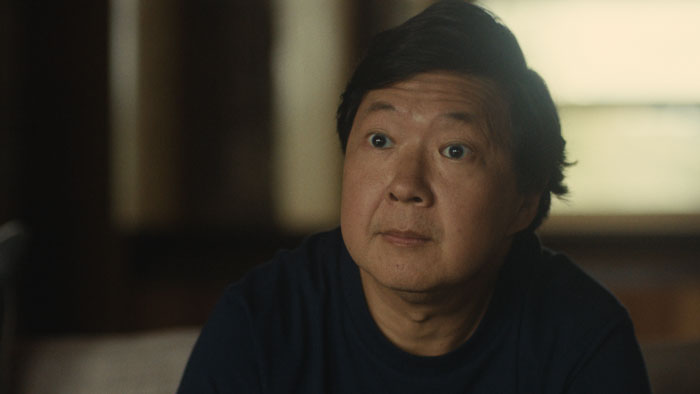
“… rattlesnake-catching racist hillbillies and hateful rangers…”
The film is told mostly through Benjamin’s eyes. He frequently converses with Halmoni in some of the film’s more affecting moments; he falls deeper and deeper for Ellie; he faces the fact that he has to get into a good school and make his family name proud. At its heart, A Great Divide is a coming-of-age story, and if Shim had wholly embraced this perspective, maybe the film would have had a more significant impact. Yet the plot meanders, even giving Ken Jeong – known primarily for his comedic roles – an extended monologue scene about racism. Hard as he tries, the actor can’t contain himself, resorting to impressions of the K-pop band BTS and yelping out, “Yeeehaw, I have a hankerin’ for some specials,” at a local diner. Again, perhaps if dark comedy drove the narrative, it would all work seamlessly. Perhaps.
Instead, we get more cringe lines, like: “They bring in their money, and you know what they leave us? They leave us desolation,” or, “Being here, with your family… it makes me wonder if [racism] is a problem,” or my personal favorite, “Sometimes, good snakes and bad snakes look exactly alike.” Jae Suh Park exudes natural sophistication, but even she struggles with some of the awkward dialogue. Emerson Min and Miya Cech fare best, but their incessant awkwardness becomes tiresome. The few familiar notes the film does play get pounded into the viewers’ brains.
Ray Hunag’s magnificent camerawork captures the majesty, the isolation, and the formidable nature of Wyoming. A scene involving a bison herd will take your breath away. Another sequence, revolving around a snake incident, is taut and skillfully made. The aforementioned Grandma Halmoni moments form the heart of the film. And the ending – the toughest part of any film to nail – really works. Yet, ironically, Shim, who co-wrote A Great Divide, does a disservice to her heroes by not examining them enough as flawed human beings – as we all are – and instead regurgitating the same themes, portraying the same irredeemable rural white folk and enunciating the same rhetoric we’ve heard many times before. Sometimes, the seemingly smallest fracture that separates the sublime from the maudlin is actually, well, a great divide.
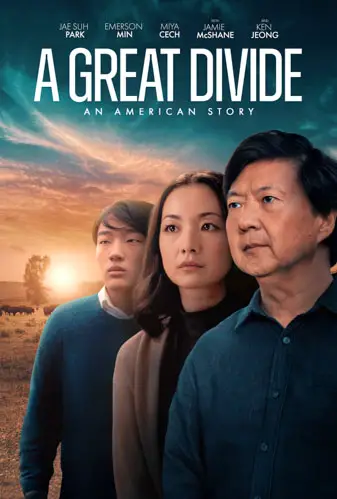
"…a sublime finale"
